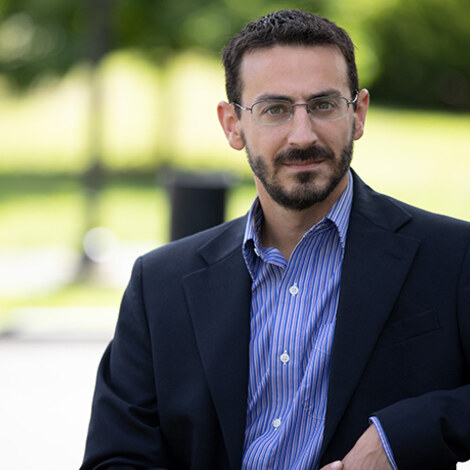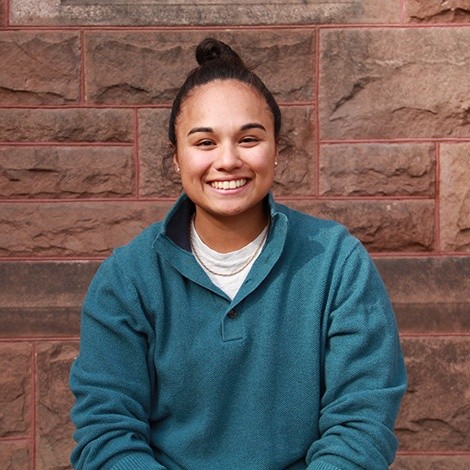EDUC-205 Social Justice in Education
When do we bring up issues of identity (i.e., race, class, gender, etc) in a classroom? What do teachers need to interrupt racism and other types of oppression? How do societal issues affect schools and communities? This course examines the historical, social, and legal underpinnings of social constructions and how perspectives on racism and other types of oppression have influenced lives within school communities. Topics include white privilege, white supremacy, and accountability, achievement and opportunity gaps, gender oppression, classism, and the impact of anti-oppressive pedagogies on multiple levels. Intersectionality of race and other identities will also be addressed. Essays, response papers, and final project are required.
EDUC-220 Foundations of Multicultural Education
This course offers a study of the historical, theoretical, and philosophical perspectives that are the underpinnings of multiculturalism in education. Through selected readings, class discussion, and oral presentations, the course will examine the epistemological elements of race, class, culture, and gender in the classroom.
EDUC-233 Educational Psychology
What do we learn? How do we learn? Why do we learn? In this course, we will study issues of learning, teaching, and motivation that are central to educational psychology. We will explore the shifting paradigms within educational psychology, multiple subject matter areas, (dis)continuities between classroom and home cultures, students' prior experiences, teachers as learners, ethnic and gender identity in the classroom, and learning in out-of-school settings.
EDUC-263 Teaching English Learners
This course addresses core competencies outlined in the Massachusetts Department of Education's Sheltered English Immersion endorsement requirement. Readings in language acquisition theory, language learning and teaching, effective lesson design and assessment, Sheltered Instruction Observation Protocol, and knowledge of linguistically and culturally diverse learners are covered. Students will have experience developing and adapting lessons and curriculum to address the needs of students. All participants will have opportunities to connect theory and practice through a pre-practicum teaching placement in a local school district.
EDUC-267 Children's Literature for Educators
This course introduces various genres of children's literature, including literature for adolescents; explores equity and social justice issues; and examines approaches to using literature in the PreK-8 curriculum with an emphasis on social-emotional learning and making literature accessible to all learners. Students will read a variety of texts across genres and discuss ways to integrate literature into curriculum and learning as they expand their knowledge and appreciation of children's literature. Literature will be examined from multiple perspectives.
EDUC-295 Independent Study
EDUC-300 The Process of Teaching and Learning: Developing Literacy in Early Childhood and Elementary Schools
Through a balanced and integrated approach students will learn to develop literacy in early childhood/elementary schools. Class members will learn about emergent literacy, diagnosing language needs, integrating phonics skills in a literature-based program, the teaching of process writing, children's fiction and nonfiction literature, and the use of portfolios for assessment. Course required for spring semester practicum students. Course evaluation is based on written and oral work done individually and in groups. Requires a prepracticum.
EDUC-320 Observing and Assisting in Inclusive Classrooms
Students are expected to complete a supervised field experience full-time every day during January Intersession in an inclusive classroom in a school setting. Placements can be located within or outside of the Five College area. In addition to the field experience component, students attend three course meetings (detailed below). Reading and writing assignments focus on a survey of learning disabilities, descriptions of special education programs, understanding Individuals with Disabilities Education Act policies and placement options, interpreting Individualized Education Program plans, and planning curriculum for inclusive classrooms.
EDUC-322 Practicum Seminar on Teaching and Learning: Early Childhood and Elementary Education
This weekly seminar provides students with opportunities to examine curriculum development models, develop an integrated curriculum unit utilizing state and national content area standards, review researched based models of classroom management, and engage in dialogue with practicing teachers regarding numerous aspects of teaching and student learning. Additional topics covered include the arts in education, physical education, legal obligations of teachers, and home-school communication. As is the case in all pre-licensure programs, there is continued emphasis on addressing the needs of students with disabilities and English Language Learners.
EDUC-323 Student Teaching in Early Childhood and Elementary Schools
Students participate in full-time student teaching in early childhood and elementary classrooms for 12 weeks. During this semester-long field-based placement, students hone classroom management skills, implement an extended integrated curriculum unit, deliver lessons in all content areas, and develop a wide range of assessment skills. The practicum culminates in two weeks of Lead Teaching, during which the student is responsible for managing all aspects of the classroom program. Students work with classroom teachers and college supervisors to address Professional Teaching Standards as required by the Commonwealth of Massachusetts' Candidate Assessment of Performance.
EDUC-324 Observing and Assisting in Early Childhood and Elementary Settings
Discussions and fieldwork provide the student with an opportunity to understand the classroom as a learning community. The tutorial includes several meetings focusing on the student's participant observations and assigned readings. Fieldwork includes a minimum of 20 hours on site, individually scheduled in early childhood (pre K-2) or elementary (1-6) settings. Assessment includes in-progress reports and a final project related to fieldwork. Course graded on a credit/no credit basis.
EDUC-325 The Process of Teaching and Learning: Developing Math/Science/Technology Instruction and Curriculum
Students will learn about inquiry-based science/math curriculum and use of technology in PreK-6 classrooms. They will construct more extensive understandings of science/math instruction by developing lessons that implement the Massachusetts Frameworks incorporating the Common Core State Standards for Mathematics. Emphasis will be on learning diverse management and instructional practices, such as the use of manipulatives, problem solving, cooperative learning, and project-based learning. Students will also become more adept at developing effective approaches to using assessment to guide instruction. All participants will have opportunities to connect theory and practice.
EDUC-330 The Process of Teaching and Learning in Secondary and Middle Schools
This course addresses the question: what does teaching for understanding look like, and how can we plan for it? Informed by current research and effective teaching practice, students learn to plan and implement curricular units and lessons that engage adolescents, strengthen their literacy skills, and further their understanding of content. Topics include establishing a supportive classroom environment, designing equitable learning situations for students from diverse racial, ethnic, cultural and linguistic backgrounds as well as students with special needs, using digital media to enhance learning, and examining the connections between pedagogy and classroom management. All participants will have opportunities to connect theory and practice.
EDUC-331 Student Teaching in Secondary and Middle Schools
Students participate in full-time student teaching in middle or secondary classrooms for 12 weeks. During this semester-long field-based placement, students hone classroom management skills, design and implement curriculum, and develop a wide range of assessment skills. Students work with classroom teachers and college supervisors to address Professional Teaching Standards as required by the Commonwealth of Massachusetts' Candidate Assessment of Performance.
EDUC-332 Observing and Assisting in Secondary and Middle School Educational Programs
This is a fieldwork-based independent study course. During the fall and spring semesters it involves 20 to 40 hours of individually scheduled fieldwork in a secondary or middle-school classroom or educational program. Students keep a reflective journal, read relevant articles and essays, meet regularly with the instructor, and write a final report.
EDUC-333 Practicum Seminar on Teaching and Learning: Middle and Secondary Education
This weekly seminar provides students with opportunities to design and discuss case studies involving adolescents in middle and secondary school settings, review researched-based models of instruction, and classroom management, and engage in dialogue with professionals regarding numerous aspects of teaching and student learning. Additional topics covered include reviewing the legal obligations of teachers, addressing the needs of students with disabilities, English language learners, and developing effective communication between home and school.
EDUC-395 Independent Study



